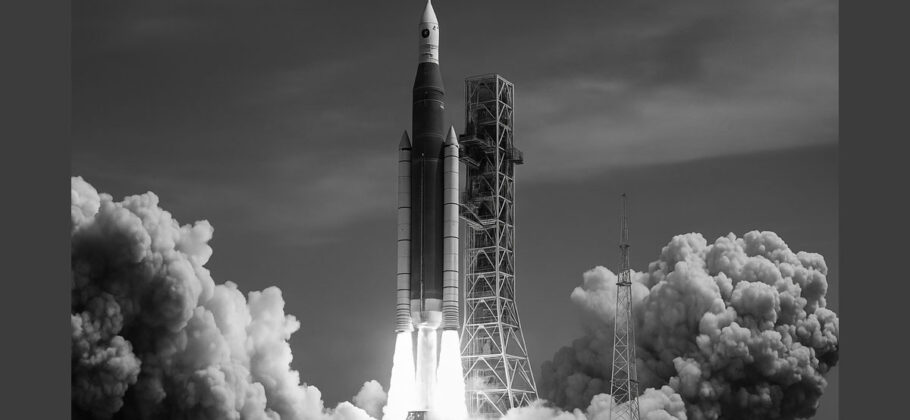A new space race is underway, and this time the rival is not the Soviet Union but China. Recent breakthroughs in Beijing’s lunar program suggest that China may land astronauts on the Moon before the United States returns with its Artemis missions. The implications go far beyond symbolism. Experts warn that if America loses this contest, it risks surrendering technological leadership, national prestige, and even control over the future rules of space. The urgency could not be greater: the United States must act decisively, or it may find itself permanently behind.
China’s Steady March Toward the Moon
China’s space program has been methodical, consistent, and highly ambitious. On August 6, Chinese engineers tested a high-fidelity mockup of the 26-ton “Lanyue” lunar lander near Beijing. Using giant tethers to simulate the Moon’s weak gravity, the vehicle fired its main engines and fine-control thrusters while maneuvering across a cratered surface before lifting off again. In its official statement, the China Manned Space Agency declared that the test “represents a key step in the development of China’s manned lunar exploration program, and also marks the first time that China has carried out a test of extraterrestrial landing and takeoff capabilities of a manned spacecraft.” The agency reaffirmed its intention to land astronauts on the Moon before 2030.
Only days later, on August 15, China successfully conducted a 30-second static fire of the Long March-10 rocket’s powerful center core, equipped with seven YF-100K engines burning kerosene and liquid oxygen. The rocket’s design, with three combined cores, will be able to lift 70 metric tons into low-Earth orbit, a capability comparable to America’s most powerful launch systems. This follows a June test of the Mengzhou spacecraft’s launch escape system, another milestone for future crewed missions.
Taken together, these achievements mean that China is advancing on all three critical components: the spacecraft to carry astronauts, the lander to reach the lunar surface, and the heavy-lift rocket to get them there. As Dean Cheng, a leading analyst of Chinese space policy, explained, this reflects Beijing’s “crawl-walk-run approach” to major projects. He warned, “At the rate things are going, sadly, it seems quite likely that the Chinese will land on the Moon before NASA can return.”
America’s Artemis Program in Trouble
NASA’s Artemis program has ambitious goals. Unlike Apollo, which was canceled after six short landings, Artemis seeks to build a long-term lunar presence by developing reusable systems, in-space refueling, and technologies that could lead to a lunar economy. In the long run, this strategy is more sustainable. But the immediate problem is that Artemis is bogged down in delays.
Artemis II, a crewed flight around the Moon, has already slipped from 2025 to 2026. Artemis III, the mission meant to land astronauts, may not launch until 2027 or later. SpaceX’s Starship, one of two landers under contract with NASA, has encountered setbacks, and Blue Origin’s Mark 2 lander is still in development. Even former NASA astronauts are sounding the alarm. Terry Virts told Newsweek, “China could absolutely win the second space race.” He added, “If they send the next astronauts to the Moon, the whole world is going to say, wow, America had a great century. The 20th century was a great American century. The 21st century is the Chinese century.”
The problem is compounded by politics. NASA faces budget cuts that threaten its workforce and research programs. Virts criticized these cuts, saying, “That destroys the American science institution for medicine, for space, for weather, for all kinds of science. This administration and the Republican Party hate science. They hate knowledge. They hate education. They’re doing all they can to destroy it.” Without stable funding and consistent direction, NASA risks being unable to match the steady, long-term support that Beijing provides to its own space program.
Why This Race Matters
For some Americans, the argument might be, “We’ve been there already.” But experts warn that this misses the point. Dean Cheng explained, “The geopolitical impact of the Chinese beating the U.S. to the Moon would be enormous. It means the end of American exceptionalism.” Since 1969, America’s ability to land humans on another world has been a symbol of national power. If China succeeds first this decade, it would show that Beijing, not Washington, is capable of “big” achievements. In Cheng’s words, “The optics of the passing of the American age would be evident—and that in turn would absolutely affect other nations’ perceptions of who is winning the broader technological and ideological competition.”
China’s ambitions go beyond a single landing. Their choice of the lunar South Pole hints at plans to establish permanent bases, supported by communications systems and navigation networks. Beijing has already announced it will deploy its own lunar positioning system, building on its BeiDou satellites. If China regularly dispatches missions and sets up long-term facilities, it could control technical standards for navigation, communications, and even traffic management in cislunar space. This would give Beijing a dominant voice in how space is used, and possibly exclude or pressure other nations.
What the U.S. Must Do
America still has advantages: a larger economy, decades of experience, and a thriving private space sector led by companies like SpaceX and Blue Origin. But without political will and program stability, these strengths may be squandered. Cheng noted, “Scientific and engineering advances don’t do well in the face of such wild swings and inconstancy.” He urged the Trump administration to “make a programmatic commitment to some goal, whether the Moon or Mars. It needs to mobilize Congress and the public to support that goal.”
In practical terms, that means stable funding for Artemis, clear priorities, and strong leadership from the White House. It also means creating incentives for private industry, such as follow-ons to the Ansari X Prize, which previously spurred innovation. NASA must be allowed to do more than survive from year to year. It must be empowered to compete.
A Defining Decade
The next few years will determine who shapes the future of space. If China reaches the Moon first, it will gain not just prestige but also the power to set the rules for exploration and resource use. The United States, once the undisputed leader in space, could find itself relegated to second place in a race it started more than half a century ago.
The urgency is clear. As Virts warned, “Do we want to go there and build a big village that just stays in one place and we have a moon base? Or do we want to go there with a small crew, small vehicles, that we can land on the moon and use that as a testing ground to go onto Mars? I don’t know. We don’t have that as our national vision.”
If America is to remain a leader in space, it must recover that vision now. The question is not just whether American astronauts will return to the Moon, but whether America will remain the nation that inspires the world with bold achievements. Losing this race would not just be a defeat in space. It would be the beginning of the Chinese century.





